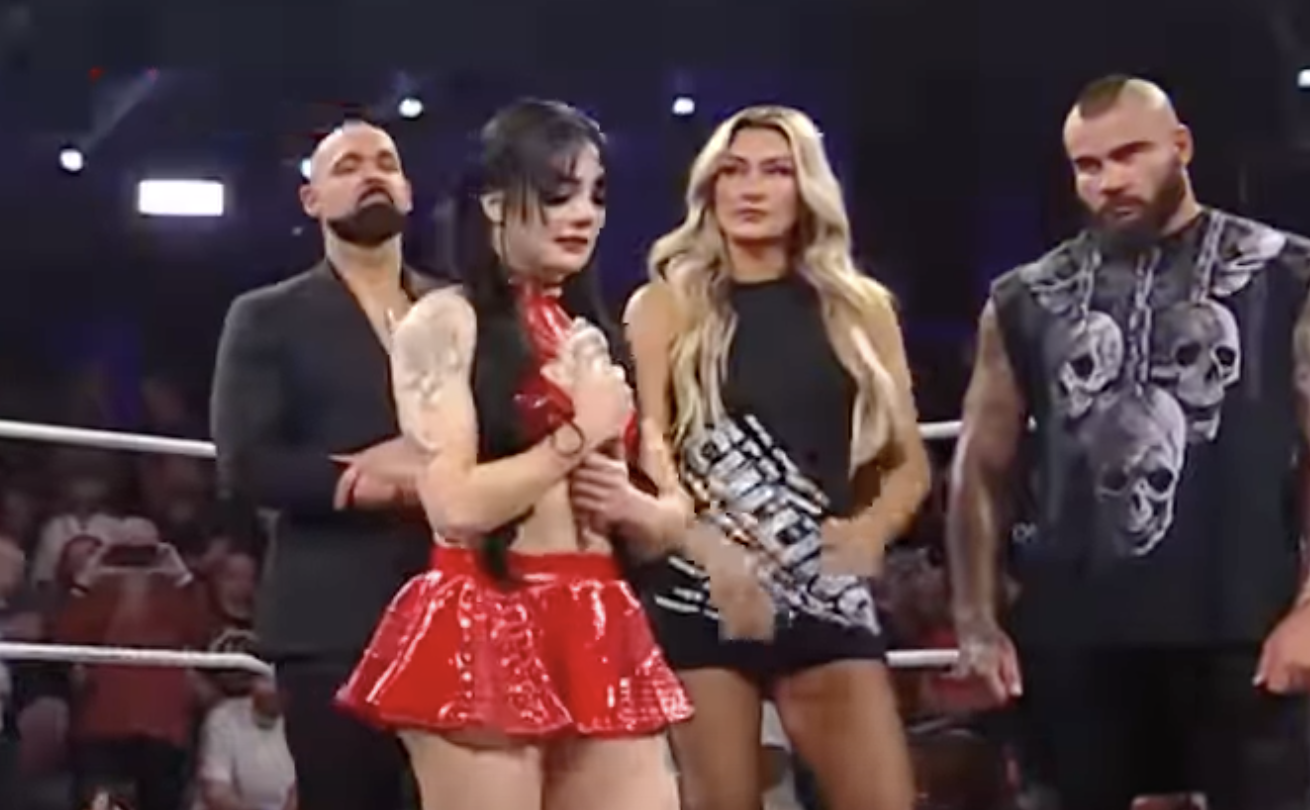They called her Candy Floss. A name that sounds like bubblegum and fairground rides and giggles in technicolor. But don’t be fooled. Beneath the pastel persona, behind the pink hair and wide-eyed grin, was a young woman wrestling demons long before she laced up her first pair of boots.
Amy Samardzija—born in London, half-Croatian by blood, all fighter by heart—walked into pro wrestling like Alice down the rabbit hole. Trained by Progress Wrestling Dojo and later polished at the WWE Performance Center, she debuted in 2016 at the age of 17. That’s barely old enough to vote, drink, or rent a car. But it’s plenty old enough to break your body for cheers.
From day one, she was marketed as the kind of character Vince’s candy-coated vision of women’s wrestling used to love. Billed from “The Candy Kingdom.” Dressed in colors you’d find on a children’s birthday cake. Her whole aesthetic whispered innocence. But in the ring, it was fists and fire and flawless timing.
She wasn’t just a gimmick. She could go. And people who saw her early in Pro-Wrestling EVE or RevPro knew the truth: this girl wasn’t fluff. She was fierce.
Sugary Gimmick, Steel Backbone
In Pro-Wrestling EVE, she made her presence known by pinning Chakara—a solid feather in her cap in a promotion known for producing tough-as-nails women. It didn’t take long for Candy Floss to earn a reputation as more than a walking emoji. Behind the smile was someone who could twist you into a knot and tap you out with a grin.
In 2018, she did what many of Britain’s best dream of—she made it to Stardom, the mecca of joshi wrestling, where kawaii is lethal and respect is earned in bruises. She debuted by beating Shiki Shibusawa and hung in the ring with the likes of Hana Kimura, Natsu Sumire, Zoe Lucas, and Konami. And she didn’t flinch. She brought her sugary shtick to Japan and wrapped it around a sharp technical foundation.
You don’t survive Stardom by being cute. You survive it by being dangerous. And Candy Floss, despite the name, proved she belonged.
But even as her career blossomed, something darker brewed beneath the surface.
The NXT UK Experiment
October 13, 2018—she stepped into the NXT UK ring against Rhea Ripley. Big lights. Bigger opponent. Candy Floss looked like a sugarplum in a world of wolves. And Ripley devoured her. But there was something admirable in the effort. The way she kept coming forward, refusing to be treated like enhancement talent, even though that’s what she was cast as.
A year and change later, WWE made it official. In January 2020, they signed her to a contract. For Candy Floss, the kid from the Candy Kingdom, this was supposed to be the golden ticket. The storybook moment. The kind of deal kids dream about in wrestling schools.
But the ring is never that kind.
She didn’t become champion. Didn’t headline TakeOver. Hell, she barely wrestled on TV. Her character—while visually distinct—felt increasingly out of step with the grittier direction NXT UK was taking. You could almost see it on her face: the shimmer was fading. Like someone who brought a sparkler to a gunfight.
Then, in July 2021, she made the most honest move of her career: she stepped away.
She didn’t blame creative. She didn’t post some bitter farewell. She simply said, “I’m on leave” to focus on her mental health. No drama. No spotlight-chasing. Just the raw, unfiltered truth of a young woman battling something far harder than any opponent.
That’s the kind of courage that doesn’t get you belts or T-shirts. But it should.
By December 2021, WWE let her contract expire quietly. No sendoff. No final match. Just a footnote on a dirt sheet.
The Unspoken Fights
What Candy Floss represented—especially to young women watching—wasn’t just the sparkle and joy. It was the vulnerability underneath. In a business where image is everything, she dared to show cracks. She dared to say, “I’m not okay.” And in a world of false toughness, that made her stronger than most.
Professional wrestling eats the young. Especially the sensitive. Especially the ones who aren’t willing to sell out their soul for screen time. And Amy Samardzija? She was never going to be the loudest or the most marketable. But she was real.
That matters.
She took her break. She got help. And whether or not she ever steps back into the ring doesn’t define her. She already won the fight that mattered.
Legacy in Pink
Some wrestlers are remembered for titles. Others for promos. Candy Floss may be remembered for something subtler—but no less significant. She reminded us that behind every gimmick, there’s a person. And sometimes, that person needs to hit pause.
She was an illusion wrapped in a submission hold. A performance artist in a pastel mask. She looked like the carnival, but she fought like a kitchen brawler with something to prove.
And maybe that’s enough.
Maybe not every wrestler has to go out in a blaze of gold and pyro. Maybe some just go out quietly, head held high, heart still healing.
Candy Floss was sweet. But don’t ever mistake sweet for soft.
Not in this business.
Not ever.
